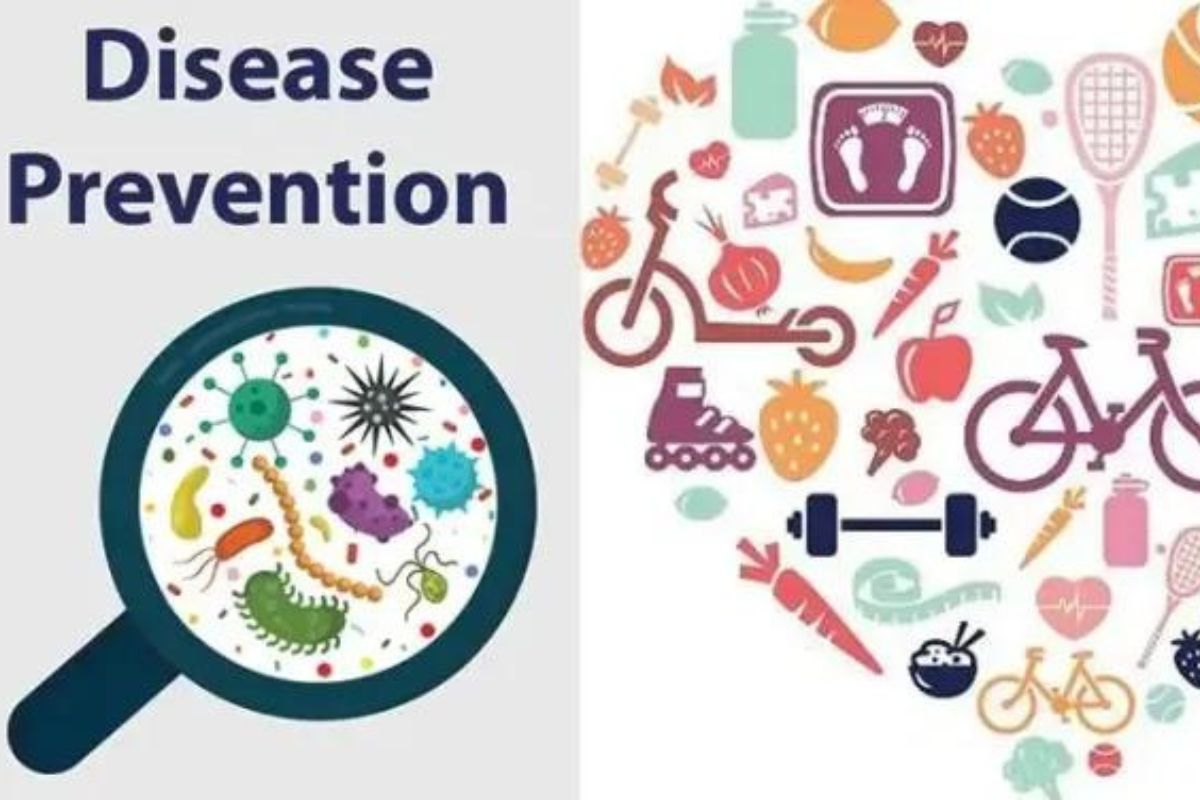In today’s world, health insurance coverage is paramount for ensuring access to essential medical services and protecting individuals and families from financial hardship. With rising healthcare costs and the unpredictability of illness or injury, health insurance provides a safety net, allowing people to seek timely medical care without worrying about exorbitant expenses. Additionally, health insurance encourages preventive care, early diagnosis, and management of chronic conditions, promoting overall well-being and reducing the burden on healthcare systems. Access to quality healthcare should be a fundamental right, and health insurance coverage plays a crucial role in making this a reality for people worldwide.
Importance of health insurance.

Health insurance is crucial for several reasons. Firstly, it provides financial protection by covering medical expenses, including hospitalization, surgeries, and medication costs. This prevents individuals and families from facing overwhelming financial burdens due to unexpected healthcare needs. Additionally, health insurance promotes access to timely and necessary medical care, allowing individuals to seek treatment without delay, which can improve health outcomes and prevent complications. Moreover, health insurance often includes coverage for preventive services such as vaccinations and screenings, encouraging early detection of health issues and reducing the risk of serious illnesses. By ensuring access to quality healthcare, health insurance contributes to the overall well-being and productivity of individuals and communities. Overall, the importance of health insurance cannot be overstated, as it provides both financial security and peace of mind while promoting better health outcomes for everyone.
Health care protection.
Healthcare protection refers to measures taken to safeguard individuals and communities against the financial risks associated with medical expenses and to ensure access to necessary healthcare services. This protection can take various forms, including health insurance coverage, government-funded healthcare programs, and preventive health initiatives.
Health insurance serves as a primary means of healthcare protection by providing coverage for medical expenses such as doctor visits, hospitalizations, prescription medications, and treatments. By spreading the financial risk across a pool of insured individuals, health insurance helps mitigate the impact of high healthcare costs on individuals and families.

Government-funded healthcare programs, such as Medicaid and Medicare in the United States, aim to provide healthcare protection to vulnerable populations, including low-income individuals, seniors, and people with disabilities. These programs offer access to essential healthcare services, ensuring that individuals receive the medical care they need regardless of their ability to pay.
In addition to insurance and government programs, preventive health initiatives play a crucial role in healthcare protection. These initiatives focus on promoting healthy behaviors, early detection of diseases, and interventions to prevent the onset or progression of health conditions. By addressing risk factors and promoting wellness, preventive health measures contribute to reducing healthcare costs and improving overall population health.
Overall, healthcare protection is essential for ensuring that individuals and communities have access to necessary medical care without facing financial hardship. By combining health insurance coverage, government-funded programs, and preventive health efforts, societies can work towards achieving universal access to quality healthcare for all.
Medical coverage necessity.
Medical coverage is a necessity for individuals and families to ensure access to essential healthcare services without facing financial hardship. Without medical coverage, the cost of medical care, including doctor visits, hospitalizations, surgeries, and prescription medications, can be prohibitively expensive and potentially devastating for individuals’ finances.
Medical coverage provides financial protection by covering all or a portion of the costs associated with medical treatment, depending on the terms of the insurance policy or healthcare plan. This coverage helps individuals and families afford necessary medical care when they need it, preventing them from having to choose between their health and financial stability.
Moreover, medical coverage encourages individuals to seek timely medical attention, promoting early detection and treatment of health issues. By addressing health concerns early on, medical coverage can prevent the progression of illnesses, reduce the risk of complications, and improve overall health outcomes.
Medical coverage also contributes to societal well-being by ensuring that individuals have access to preventive care services such as vaccinations, screenings, and wellness visits. These services help identify health risks early and promote healthier lifestyles, ultimately reducing healthcare costs and improving population health.
Overall, medical coverage is not only a necessity for individuals and families but also a fundamental component of a well-functioning healthcare system. By providing financial protection, promoting timely access to medical care, and supporting preventive health measures, medical coverage plays a vital role in safeguarding individuals’ health and well-being.
Health policy significance.
The significance of health policy lies in its crucial role in shaping and guiding the organization, delivery, and financing of healthcare services within a society. Health policies establish the framework for addressing public health challenges, promoting equitable access to healthcare, and improving health outcomes for individuals and communities.
One significant aspect of health policy is its role in setting priorities and allocating resources to address pressing health issues. By identifying key health concerns and establishing strategic objectives, health policies guide the allocation of funding, personnel, and infrastructure to support efforts such as disease prevention, health promotion, and healthcare delivery.
Furthermore, health policies play a pivotal role in regulating the healthcare industry, ensuring quality standards, and protecting consumer rights. Through regulations and oversight mechanisms, health policies aim to promote patient safety, prevent fraud and abuse, and uphold ethical standards in healthcare delivery.
Health policies also influence healthcare access and affordability by shaping insurance coverage, reimbursement mechanisms, and healthcare financing systems. Policies related to health insurance coverage, for example, determine who has access to healthcare services and the extent of financial protection provided to individuals and families.
Moreover, health policies have a profound impact on population health outcomes by addressing social determinants of health, such as education, housing, and employment. Policies aimed at reducing health disparities, improving living conditions, and promoting healthy behaviors can lead to better health outcomes and a more equitable distribution of health resources within society.
In summary, health policy is significant because it serves as the foundation for organizing and managing healthcare systems, addressing public health challenges, promoting equitable access to healthcare, and improving health outcomes for individuals and communities. Effective health policies are essential for creating a healthcare system that is responsive, efficient, and capable of meeting the diverse needs of populations.

Top benifits healtth insurance.
The top benefits of health insurance include:
Financial Protection. Health insurance provides financial security by covering a portion or all of the costs associated with medical treatment, including doctor visits, hospitalizations, surgeries, and prescription medications. This prevents individuals and families from facing significant financial hardship due to unexpected medical expenses.
Access to Healthcare. Health insurance ensures access to essential healthcare services, allowing individuals to seek timely medical attention when needed. By covering preventive care services, screenings, and wellness visits, health insurance encourages proactive health management and early detection of health issues.
Reduced Out-of-Pocket Expenses. With health insurance, individuals typically pay lower out-of-pocket costs for medical care compared to those without insurance. This includes copayments, deductibles, and coinsurance, which are often significantly reduced for services covered by insurance.
Comprehensive Coverage. Health insurance policies often provide coverage for a wide range of medical services and treatments, including hospitalization, emergency care, maternity care, mental health services, and prescription drugs. This comprehensive coverage ensures that individuals have access to the care they need to maintain their health and well-being.
Peace of Mind. Health insurance offers peace of mind by providing a safety net against unexpected health crises or emergencies. Knowing that they are covered by insurance in the event of illness or injury allows individuals and families to focus on their recovery without worrying about the financial implications.
Health Promotion and Disease Prevention.Many health insurance plans offer coverage for preventive care services such as vaccinations, screenings, and wellness programs. By promoting healthy behaviors and early detection of health issues, health insurance contributes to better health outcomes and reduces the risk of costly medical interventions in the future.
Overall, health insurance provides numerous benefits, including financial protection, access to healthcare services, reduced out-of-pocket expenses, comprehensive coverage, peace of mind, and support for health promotion and disease prevention. Access to health insurance is essential for ensuring the well-being and financial security of individuals and families.

Conclusion.
In conclusion, health insurance is a vital component of ensuring access to quality healthcare and protecting individuals and families from financial hardship due to medical expenses. It provides peace of mind by offering coverage for various healthcare services, including doctor visits, hospital stays, medications, and preventive care. Additionally, health insurance promotes healthier lifestyles by encouraging regular check-ups and prompt treatment of illnesses and injuries.
Moreover, health insurance plays a crucial role in safeguarding against unexpected medical emergencies and chronic conditions, offering financial support when individuals need it the most. By spreading the risk of healthcare expenses across a large pool of insured individuals, health insurance helps mitigate the burden of healthcare costs on any single person or family.
Furthermore, with the increasing costs of medical treatments and services, having health insurance is essential for individuals to afford necessary care without facing significant financial strain. It ensures that individuals can access timely and appropriate healthcare services, regardless of their socioeconomic status or pre-existing health conditions.
In summary, health insurance is not only a practical financial tool but also a fundamental aspect of promoting overall well-being and ensuring equitable access to healthcare for all individuals and communities. Therefore, it is imperative for individuals to prioritize obtaining and maintaining adequate health insurance coverage to safeguard their health and financial security.
Frequently Asked Questions.
How important is health insurance in America?
Health insurance is crucial in America, offering access to necessary healthcare while mitigating financial risks associated with medical expenses. It ensures individuals can afford treatment, promotes preventative care, and protects against unforeseen medical emergencies. Without it, many face significant barriers to receiving essential healthcare services.
What is the importance of health?
Health is vital for overall well-being, enabling individuals to lead fulfilling lives and pursue their goals. It encompasses physical, mental, and emotional aspects, influencing productivity, happiness, and quality of life. Maintaining good health through healthy lifestyle choices and access to healthcare is essential for longevity and fulfillment.
Do most people in US have health insurance?
Most people in the US have health insurance, either through their employer, government programs like Medicare or Medicaid, or purchased individually. However, some remain uninsured due to factors like cost or eligibility restrictions. The Affordable Care Act has increased coverage rates, but achieving universal coverage remains a challenge.
What is US health insurance?
Health insurance in the US is a financial product that provides coverage for medical expenses incurred by individuals or families. It typically pays for medical services such as doctor visits, hospital stays, prescription medications, and preventive care. Health insurance can be obtained through employers, government programs, or purchased individually from private insurers.
